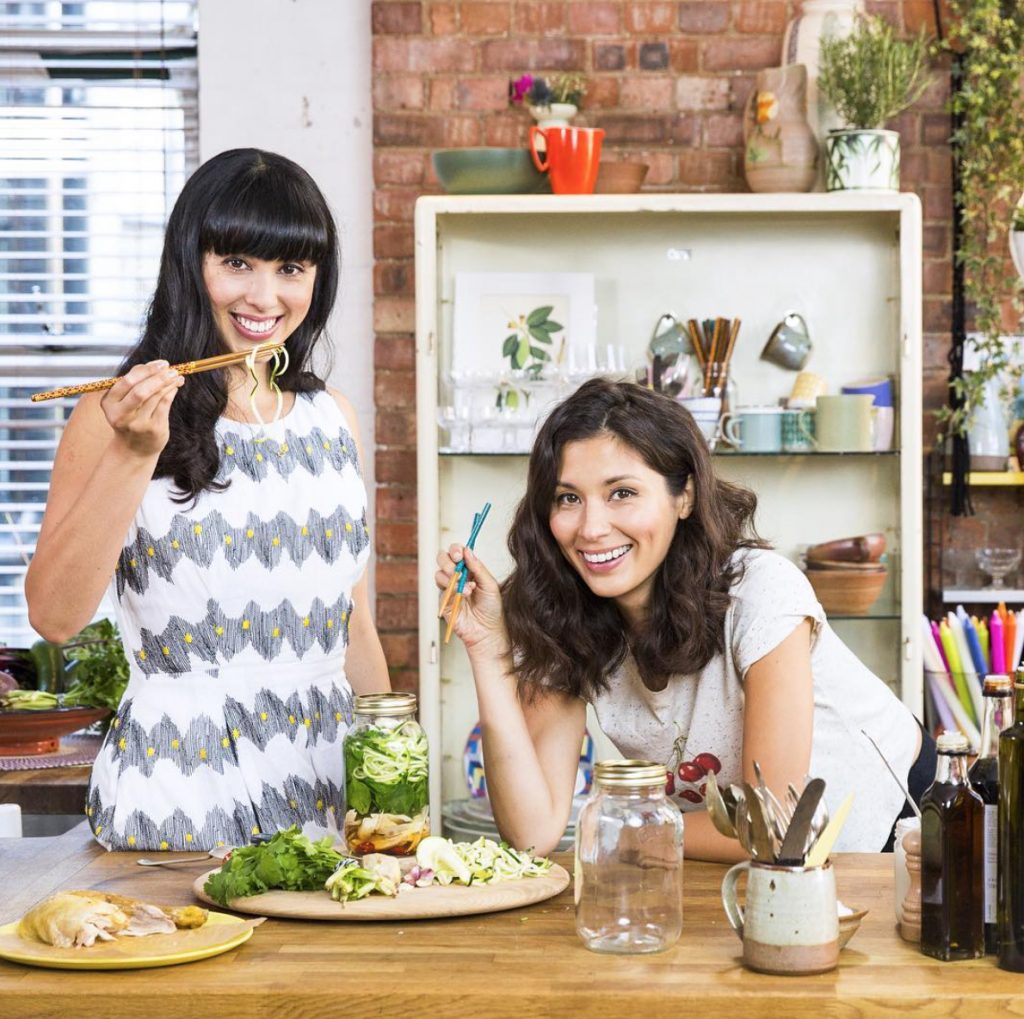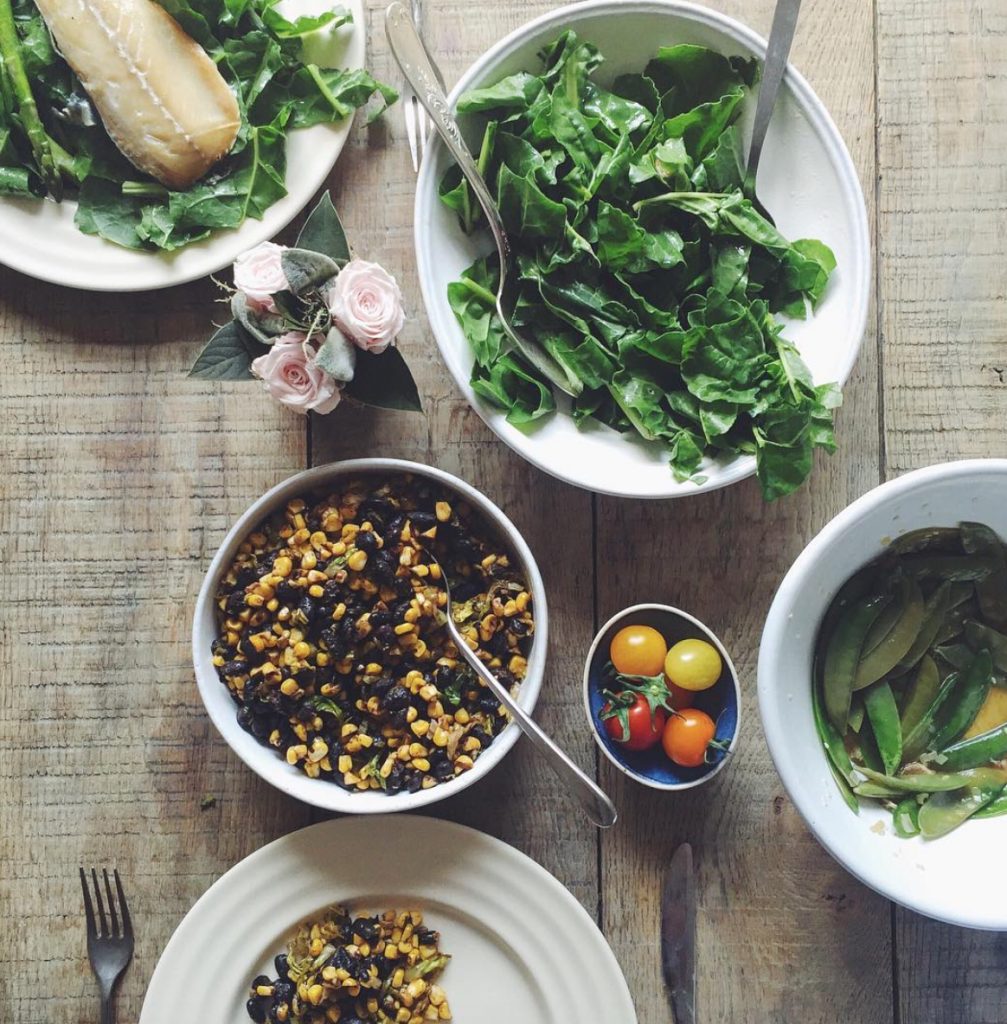Diet trends demonise various food groups, but is #cleaneating causing more harm than good?
I’m suspicious of the implication that my favourite chow is poisoning me and that a staple food group, which has sustained humanity for thousands of years, has suddenly become life threatening. There are various theories behind clean eating, but how much does this new breed of wellness bloggers really know about nutrition?
Within the last decade, wellness bloggers have overtaken the stylist and yoga instructor on the ‘Most Fashionable Job’ index. Gwyneth Paltrow, Jessica Alba and Blake Lively have all launched their own wellness websites, and even Pippa Middleton is reportedly training to be a nutritionist.
Perhaps my skepticism is misplaced; perhaps this is a much-needed ‘trend’. After all, we’re gobbling supersized meals full of sugar and refined carbohydrates. According to WHO, worldwide obesity has more than doubled since 1980. Nonetheless, I don’t understand how blacklisting fundamental food groups can be considered any healthier. “Alongside the trend of clean eating is the general conception that fat is bad for us, when in fact it’s essential for the human body,” explains nutritional health expert Dr. Steven Lin. “Many of the most important nutrients are missing in low fat diets.”
But as anyone on Instagram will know, millions of photos featuring avocado on gluten-free bread and kale ravioli are encouraging us to join the pursuit of ‘wellness’, self-love and slimness. Clean eating can attribute most of its popularity to social media, with over 30 million #eatclean hashtags on Instagram. Online influencers are a direct line to the coveted millennial audience and ostentatiously good health is now a major fashion trend. “Eating natural, organically grown fresh food is always beneficial due to their lack of chemicals, pesticides and the many harmful additives included in processed foods.”
For a layman, like me, the supermarket aisle has become a bewildering place. Rather than recognising my usual low-cost Camembert, I find myself perplexed by all manner of aberrant alternatives: ‘raw’ hummus, wheat-free bread and extraterrestrial green juice.
In this intimidating fog of food confusion, clean eating advocates offer a turmeric-stained yellow brick road through all the doom and gloom. There’s 25-year-old Madeleine Shaw, a “holistic nutritional health coach” who believes in “enlivening the hottest, happiest and healthiest you”. Ella Woodward, 23, encourages followers to embrace a plant-based diet, while the Hemsley sisters promote “whole, organic, nutrient-filled ingredients to create delicious recipes”, which are gluten-free, sugar-free, grain-free and (in my reserved opinion) joy-free.
Upon closer examination, it’s no surprise that these recipe bloggers have such an extensive audience. For the majority of consumers, packaged goods conjure up unappetising images of bland food stripped of its nutrition. Decades of deceptive advertisements and corporate-sponsored research have left large companies with unreliable brands, and according to Affilinet, bloggers are now trusted more than celebrities, journalists and politicians.

The Hemsley sisters pride themselves on using “whole, organic, nutrient-filled ingredients” © Courtesy Instagram @hemsleyhemsley
It helps that the clean eating blogger is photogenic and youthful, a far cry from a dithering Gillian McKeith, who spent prime time harping on about fibre inbetween fainting spells. Typical photos feature beach loungers and coconuts, or skinny jeans with a rustic bowlful of florid vegetables. However it’s important to note that food bloggers and nutritionists, unlike dietitians, aren’t regulated, and preposterous advice has been creeping into the press. Although few wellness bloggers claim to be experts, it doesn’t stop some of them from dishing out misguided advice, despite dietary health professionals reiterating the same psalm: everything in moderation. “Diets promoted by social media influencers can often be perceived as healthy without any scientific backing,” explains Dr. Lin. “There certainly seems to be a trend towards people having an ‘unhealthy’ obsession with being healthy. Life is all about balance and if the focus is on a particular practice that doesn’t have a sound rationale, these trends can ultimately be harmful.”
Clean eating can go beyond stocking your kitchen with organic, grass-fed, sustainable and local produce. Orthorexia nervosa is an eating disorder that revolves around excessive healthy eating. Jordan Younger became an online sensation when she went vegan to help with her chronic indigestion. Her blog The Blonde Vegan was an unprecedented success until she sought help for orthorexia. She told the New York Post that she lost 1,000 followers and even received anonymous death threats from people who felt she was betraying the vegan lifestyle.
There certainly seems to be a trend towards people having an ‘unhealthy’ obsession with being healthy
Dr. Steven Lin
So is it fair to argue that some wellness bloggers are promoting the latest food trends at the expense of vulnerable online users? According to the University of Pittsburgh School of Medicine, frequent users of social media are three times more likely to develop mental health problems and the Global Wellness Institute estimates that the ‘Health and Wellness’ industry is worth over $200 billion. There’s no doubt opportunists have tried cashing in on the trend. Disgraced blogger Belle Gibson is currently facing legal action in Australia after claiming her clean eating recipes cured her of brain cancer, which she faked to hundreds of thousands of followers. She’s estimated to have made more than $1 million from her app, The Whole Pantry, and her book of the same name.
While it’s not sensible to advise people on their eating habits if you’ve no medical training, the rise of clean eating blogs is testament that the public needs guidance. There’s no denying that what we eat is important and, while I have a low tolerance for mysticism, I’ll admit with an exasperated sigh that sometimes what the clean eating food movement advocates is healthy. The problem is that it’s often served up with a hefty side of misinformation.
Undoubtedly most clean eating followers know this and as with all diets, it’s important to follow advice in small doses. Yet I can’t help but wonder: why do we crave these punishing diet regimes? Perhaps the appeal of severe self-discipline lies in our inability to switch off and relax. Internal anxieties and overstimulation dominates the life of the modern-day woman. Is it any wonder we’re trying to wrest control wherever we can?




